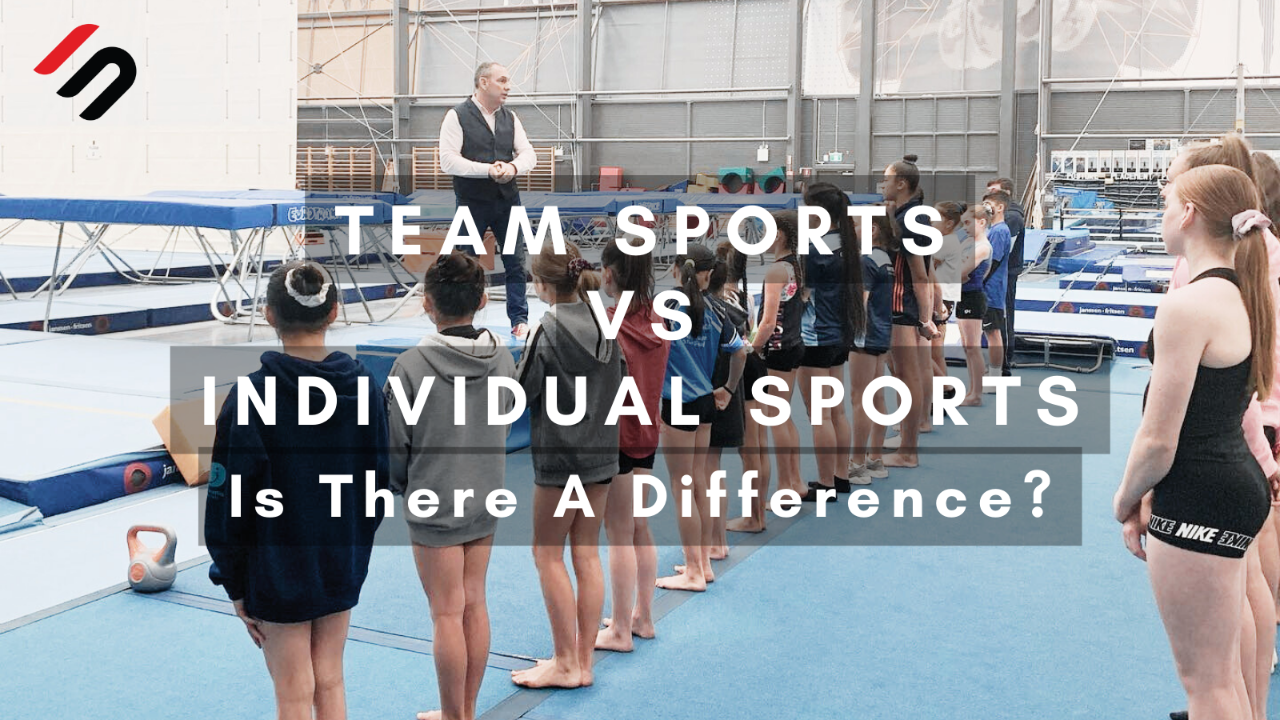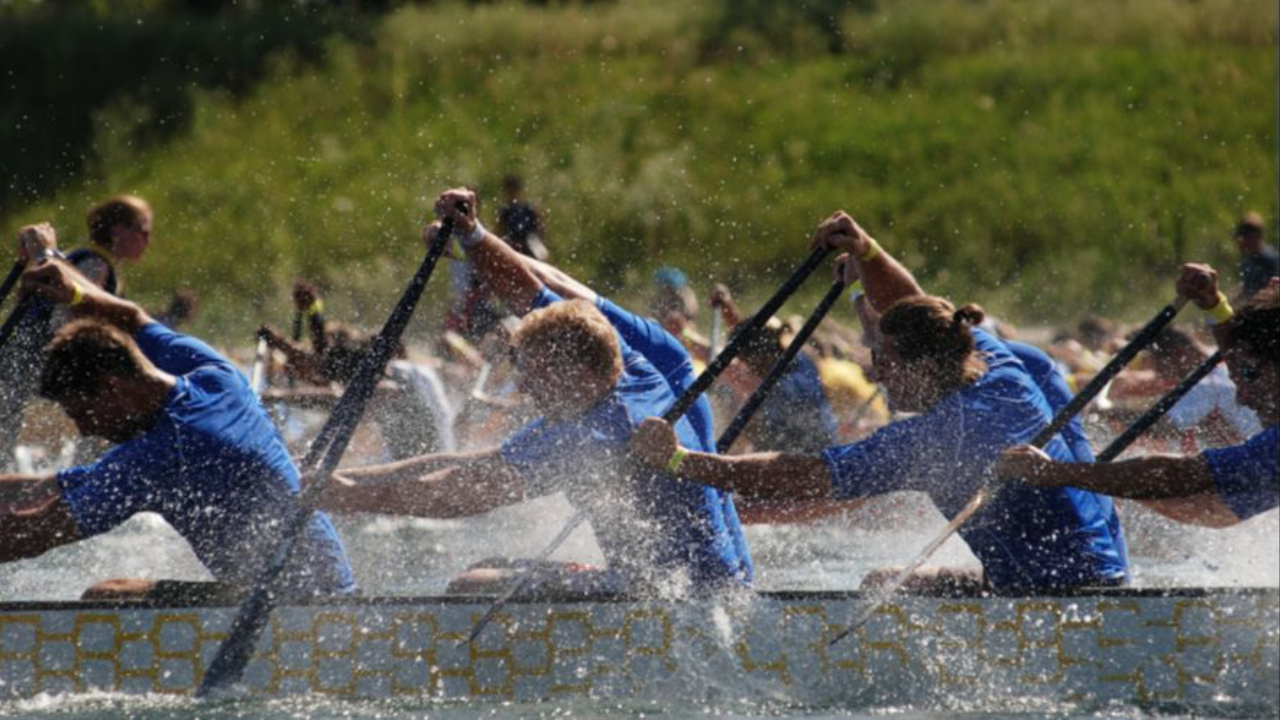Is There A Difference In Being Part Of A Team, Or Being An Individual Athlete?

Yes and No.
The reason I say yes and no is because the ethos I have as a mental performance coach, and has worked really well for athletes and coaches and teams over the years, is:
The best version of you, everybody benefits from.
If you're an individual athlete and you're thinking, ‘I’m not part of a team.’ You probably are. You just may not realise it at this stage, or you may not necessarily be there at this stage. You might be what I call a ‘tipping point’ athlete, you're just not in the team yet, or you're not in the representational part of your career yet, where understanding team dynamics is front of thought.
At some point, if you want to represent your country, you will be working within a team.
Even if you're representing your club, or your region as a team member, the fact that you're not doing it alone – you've got a coach, you've probably got peers you train with, an entourage around you of physios, S&Cs, chiropractors, mental performance specialists – YOU are part of...
Emma Nedov, Athlete, Entrepreneur and Health Coach interviews Dave Diggle
I recently sat down for a lively conversation with Emma Nedov - athlete, entrepreneur and health coach. Emma is the host of a new video podcast which explores how you can use sport to succeed in your life.
We discussed a lot of great topics, including:
🤸 The most common pattern that athletes are doing which is holding them back from performing under pressure, and makes them frustrated
🤸 The biggest mistakes coaches are making on competition day, and the instant mindset shift that will fix that
🤸 How to change just one simple thing to improve your physical performance
How To Personalise Your Coaching To Elite Athletes

The Power Of Aligning Goals With Values
As a coach of elite athletes, you understand the importance of getting the best out of your athletes. But what if there was a way to use your natural talents to do this more effectively?
Think about just how different all our athletes are. Getting results from one athlete can be a different process to getting results from another. One size really doesn’t fit all.
So as a coach, how well do you know your athletes? Do you know what triggers them into action? What drives them and what scares them? And if so, how did you work it out? Was it something that was innate, or do you have a process that enables you to better understand and optimise your athletes?
If you think about just one of your athletes right now:
- Do you know if they are visual, audio, or emotional processors?
- Are they results-driven, process-driven or socially-driven athletes?
- Do they use away-from or towards motivation?
- Do they have a clear goal?
- Are they internally or exte ...
How to Keep Your Mental Fitness as an Athlete

And Still Enjoy the Holiday Season
Ah, the holiday season.
For many, this means plenty of food, family gatherings, and a well-deserved break from our regular routines. And it's the time of year when many sports are taking a break, so for elite and professional athletes, the holidays bring a unique set of challenges – how to stay mentally fit and keep up with your training while still enjoying some downtime.
As we hurtle into a new year, we're going to look at downtime; taking time out of your sport. Because we've got to be careful, and be really conscious about how we handle downtime after being so full throttle. The minute we take our foot off the accelerator, we're either going to stall or we're just going to crash. So as an athlete, what are you doing with your time in order to coast your way through this holiday season in the best way possible?
I'm sure previous to this, you were spending most of your day fully engulfed in your sport, in your preparation. You must have spent a...
When is the right time to visualise?
Visualising your future performance: when is the right time to do it?
In elite sport, visualisation is commonly used as a mental preparation tool. Visualisation is such an important skillset to own and master as an athlete. I would say it is one of the major pillars of mental preparation.
There are many different styles of visualisation for athletes to use in order to create their own mental blueprint for optimal performance – those of you who have been through our visualisation training will know what we're talking about.
Whether it’s:
- for performance
- for consistency
- for replicability, or
- to help get through fears and anxieties
...it’s the same skillset for different uses across multiple different times and processes. And like all good mind hacks, its use needs to be specific and targeted in order to optimise its return.
So, when should athletes use visualisation? And what style is best for you and your needs?
Check out this short video that outlines just a couple of ...
Trouble Sleeping? Here’s two important things you can do to change that
The dangers of athletes getting poor sleep
It’s dark. Are you laying awake staring at the ceiling, negative thoughts swirling through your mind; every possible, worst-case scenario being conjured up?
You are not alone.
In fact, you’re pretty normal.
Sleep deprivation is a common problem for elite athletes and can happen for a variety of reasons: early morning practice, late night competitions, travel, and – more commonly – worrying about your performance.
While it may not seem like a big deal, sleep deprivation can have serious consequences. Lack of sleep can lead to decreased performance, increased injuries, and impaired decision making.
And this is becoming increasingly normal for modern-day athletes as our lives become more and more highly pressured.
That being said, you could be doing it smarter.
Here's a snippet of the advice I gave one of our top athletes about what is keeping her awake and what she can do to take back control… and I thought it would be useful advice...
On Leadership with Michael Hooper, Captain of the Australian Wallabies
Australian Wallaby captain, Michael Hooper is the most capped Australian rugby union captain in Wallaby history.
Michael has made 118 International appearances and has won the coveted John Eales Medal for a record fourth time.
At the age of 22, Michael became one of the youngest test captains and has spent the last eight years forging his on- and off-field dominance.
In this interview, Michael shares his thoughts and philosophies on leadership and the personal journey he has undertaken to get to this point in his career, and where he believes there is opportunity for improvement.
We also discuss what Michael does during his down time and how he compartmentalises between his sport and his life away from rugby.
Michael shares the importance of learning self awareness and the resilience that comes with each new challenge.
Check out this deep dive into the inspired mind of Michael Hooper.

